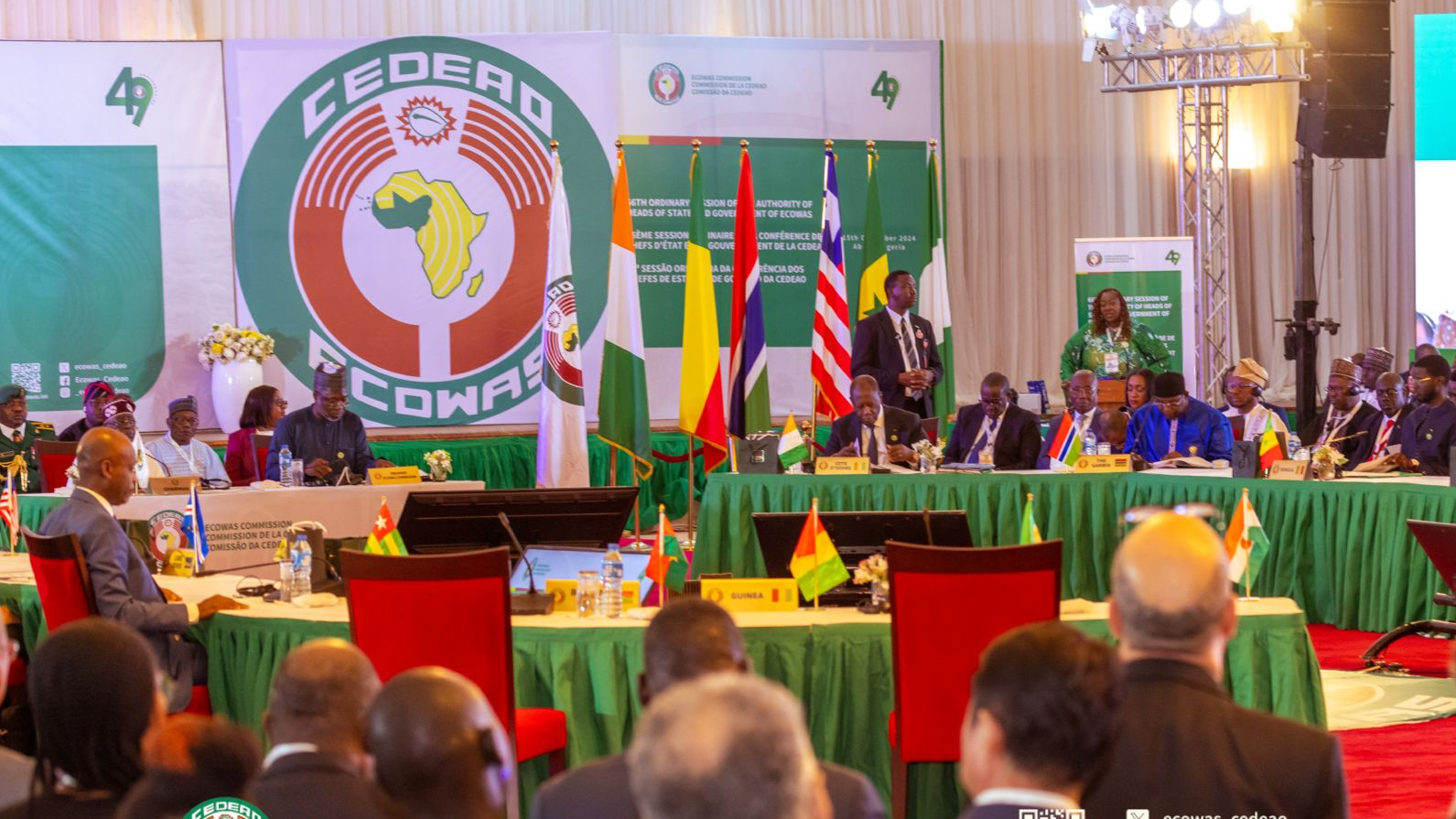ECOWAS at a crossroads: Calls for bold reform dominate Dakar conference ahead of regional summit

As West African leaders prepare to gather in Abuja for the 67th Ordinary Session of the ECOWAS Authority of Heads of State and Government, a major pre-summit conference in Dakar has reignited debate over the future direction of the regional bloc.
Titled “ECOWAS at 50: Change or Perish,” the event brought together a cross-section of voices from government, academia, civil society, and the youth to critically assess the organization’s relevance, performance, and prospects.
The conference, hosted in the Senegalese capital, served as both a reflection on ECOWAS’s 50-year journey and a clarion call for transformation.
Participants emphasized that while the bloc has contributed to regional integration and stability, it now faces deepening internal divisions, growing public skepticism, and structural weaknesses that could undermine its long-term legitimacy.
“Reform or stagnate” became a recurring theme throughout the discussions, with panelists urging urgent institutional restructuring and a departure from what some described as a bureaucratic inertia.
Speakers called for the adoption of robust governance mechanisms, regular and transparent evaluation systems, and a more grounded approach to policymaking—one that directly addresses the daily challenges faced in West African communities.
A standout recommendation was the elevation of youth voices within the ECOWAS framework.
Many advocated for strengthening and scaling up ECOWAS Clubs in schools and universities, turning them into platforms for regional civic engagement.
“Youth are not the future—they are the present.
We must not merely talk about inclusion; we must institutionalize it,” one speaker insisted.
There was also a push for a revamped communication strategy to bridge the disconnect between ECOWAS institutions and citizens.
Participants stressed that reforms, setbacks, and successes must be communicated in clear, accessible language, far beyond traditional diplomatic messaging.
The aim, they argued, is to ensure that every West African not only knows what ECOWAS is, but also understands how it tangibly affects their lives.
Timed strategically ahead of the Abuja summit, the Dakar conference is seen as a critical intervention.
President Bassirou Diomaye Diakhar Faye of Senegal is among the leaders expected to carry forward several of the conference’s key proposals to the summit floor.
Observers note that the timing underscores a growing awareness among member states that ECOWAS must recalibrate to stay relevant in an era of heightened insecurity, shifting political landscapes, and youth-led social movements.
As the conference concluded, what lingered was not a celebratory tone but a collective sense of urgency—and responsibility.
Delegates agreed that ECOWAS’s 50th anniversary must not simply mark a historical milestone but serve as a turning point.
The call is clear: a more agile, transparent, and people-centered ECOWAS, capable of evolving with the aspirations of its citizens.
About The Author
dailymailafric
I am an avid African news observer, and an active member of Daily Mail Africa.
I’m Passionate about staying informed on diverse topics across the continent,
I actively contribute to publishing on political, economic and cultural developments in Africa.



